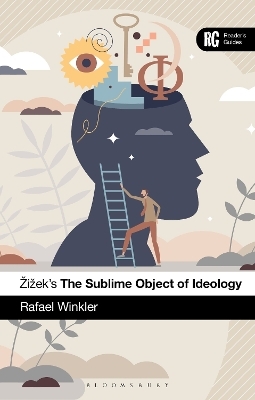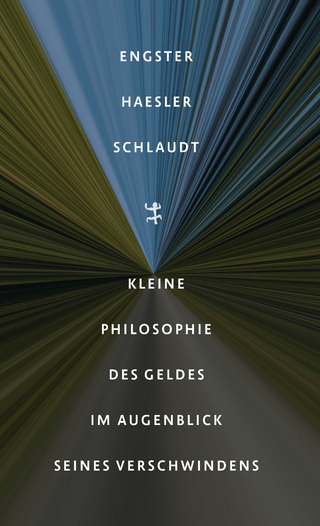
Žižek's The Sublime Object of Ideology
Bloomsbury Academic (Verlag)
978-1-350-42565-1 (ISBN)
This compelling guide introduces all of the influential thinkers and foundational concepts which Žižek draws on to create this seminal work. Grounding the text’s many and varied references in the work of Peter Sloterdijk, Saul Kripke, Walter Benjamin, Jacques Lacan, Jacques Derrida, Immanuel Kant and G.W.F. Hegel, amongst others, helps students who are encountering this mercurial writer for the first time to understand the philosophical context of his early explorations. Each of Žižek’s key arguments are unpacked and laid out, alongside an invaluable account of how The Sublime Object of Ideology impacted the critical terrain on which it landed.
Rafael Winkler is a Professor of Philosophy at the University of Johannesburg, South Africa. He is the author of Philosophy of Finitude (Bloomsbury, 2018) and editor of Phenomenology and Naturalism (2017) and Identity and Difference: Contemporary Debates on the Self (2016).
Acknowledgments
Abbreviations
Part I: Context
The Habermas-Foucault debate, and Althusser
Laclau and Mouffe; Antagonism and the Real of the Drive
Part II: Overview of Themes
Part III: Reading of the text
1.1 What is Money?
1.2 Exchange; Alfred Sohn-Rethel
1.3 Cynical consciousness; Peter Sloterdijk
1.4 Belief and Ideology
1.5 Althusser; Interpellation and Misrecognition
1.6 Kant and the Law
1.7 Disidentification
Section 2
2.1 Retroactivity (Nachträglichkeit)
2.2 Error as the Way to the Truth
2.3 Desire and Lack
2.4 Trauma redux
2.5 The Form of Ideology
Section 3
3.1 (a) The Constitution of Sublime Objects
3.2 The Quilting Point; Laclau and Mouffe’s Hegemonic Logic
3.3 Descriptivism vs. Anti-descriptivism
3.4 The Essence or ‘je ne sais quoi’ of the Object
3.5 (b) The Constitution of the Subject and Enjoyment (Jouissance)
3.6 Imaginary and Symbolic Identification
3.7 ‘Che vuoi?’
3.8 Fantasy
3.9 The Real
4.0 Ideology Revisited
Section 4
4.1 Symbolic and Physical Existence; Symbolic and Physical Death
4.2 Benjamin’s ‘Theses on the Philosophy of History’
4.3 Power and its Representation
Section 5
5.1 ‘There is No Metalanguage’; Derrida and Dissemination
5.2 Lacan and ‘Lenin in Warsaw’
5.3 The Real Revisited
5.4 Freedom and the Forced Choice; the Real
5.5 Lack, the Subject, and the Ontological Inconsistency of the Big Other
5.6 The Ideological Function of objet a
5.7 The Subject Presumed to …
Section 6
6.1 The Indefinite Judgment, Lack, and Negation
6.2 Beauty and the Sublime; the Pleasure Principle and its Beyond
6.3 From Kant to Hegel; Lack and Negativity
6.4 ‘Spirit is a Bone’
6.5 Hegel’s Phenomenology of Spirit and the Heroism of Flattery
6.6 The ‘Beautiful Soul’ and Positing the Presuppositions
Part IV: Reception and influence
| Erscheinungsdatum | 22.08.2024 |
|---|---|
| Reihe/Serie | Reader's Guides |
| Verlagsort | London |
| Sprache | englisch |
| Maße | 156 x 234 mm |
| Themenwelt | Geisteswissenschaften ► Philosophie ► Metaphysik / Ontologie |
| Geisteswissenschaften ► Psychologie ► Psychoanalyse / Tiefenpsychologie | |
| ISBN-10 | 1-350-42565-6 / 1350425656 |
| ISBN-13 | 978-1-350-42565-1 / 9781350425651 |
| Zustand | Neuware |
| Haben Sie eine Frage zum Produkt? |
aus dem Bereich


